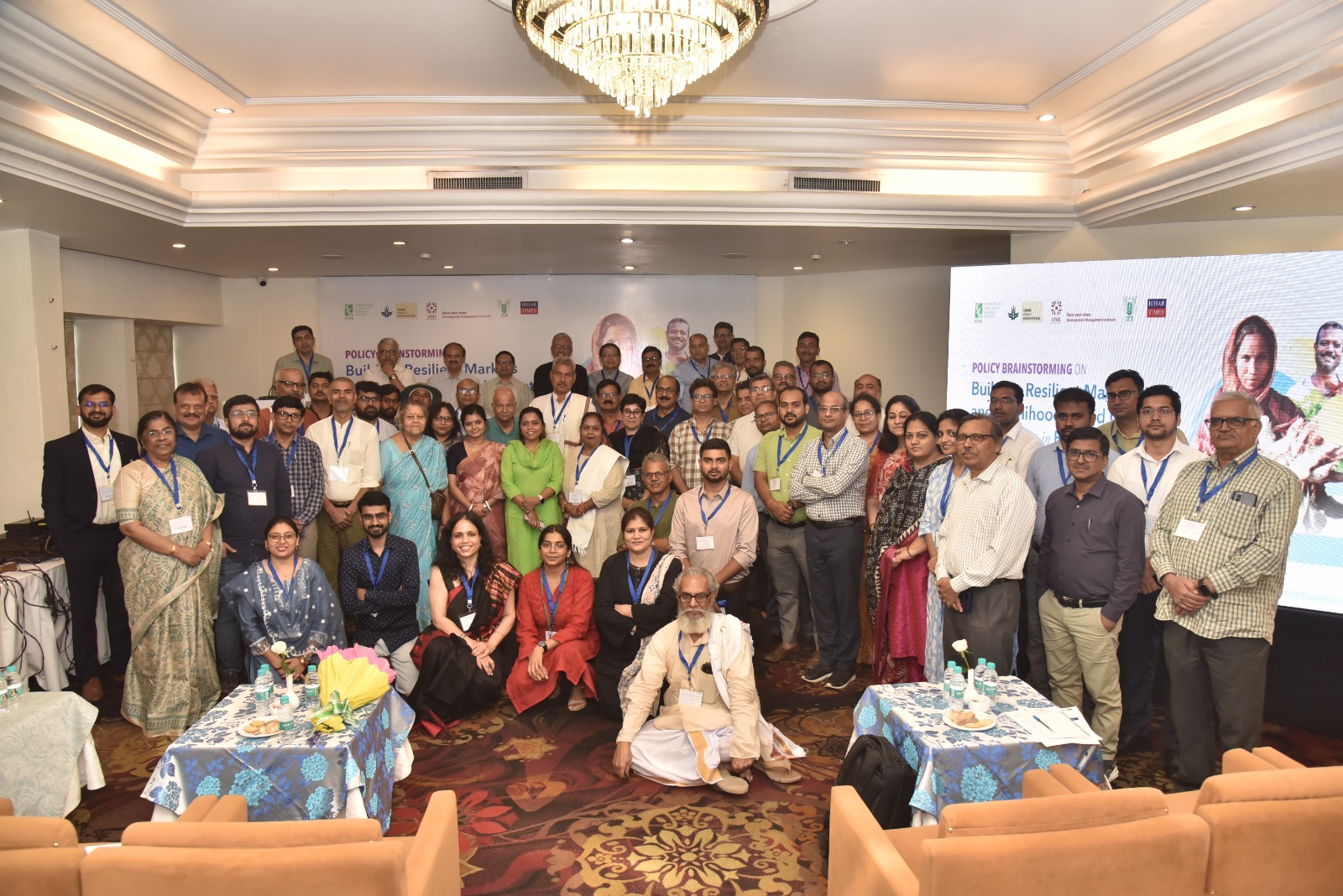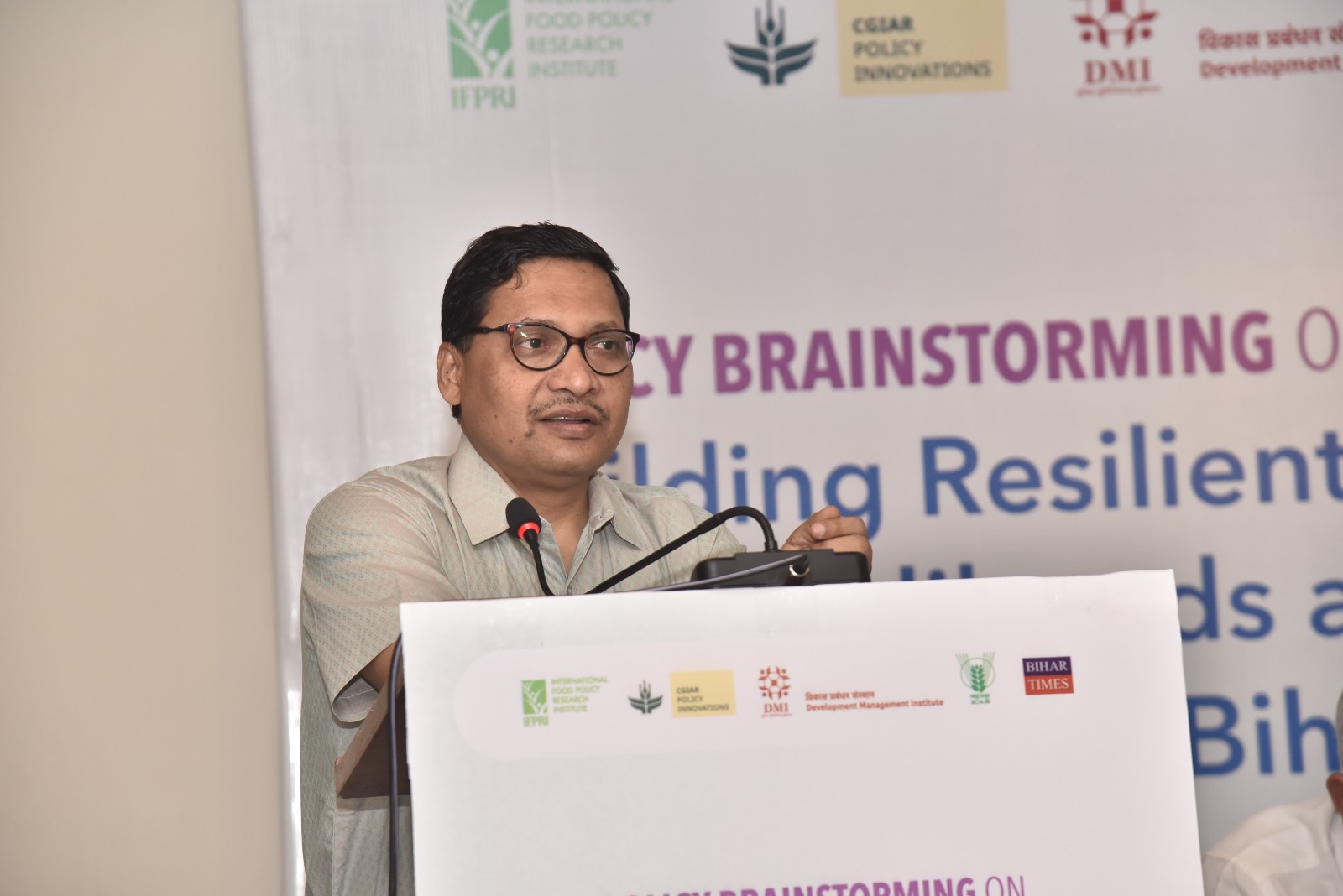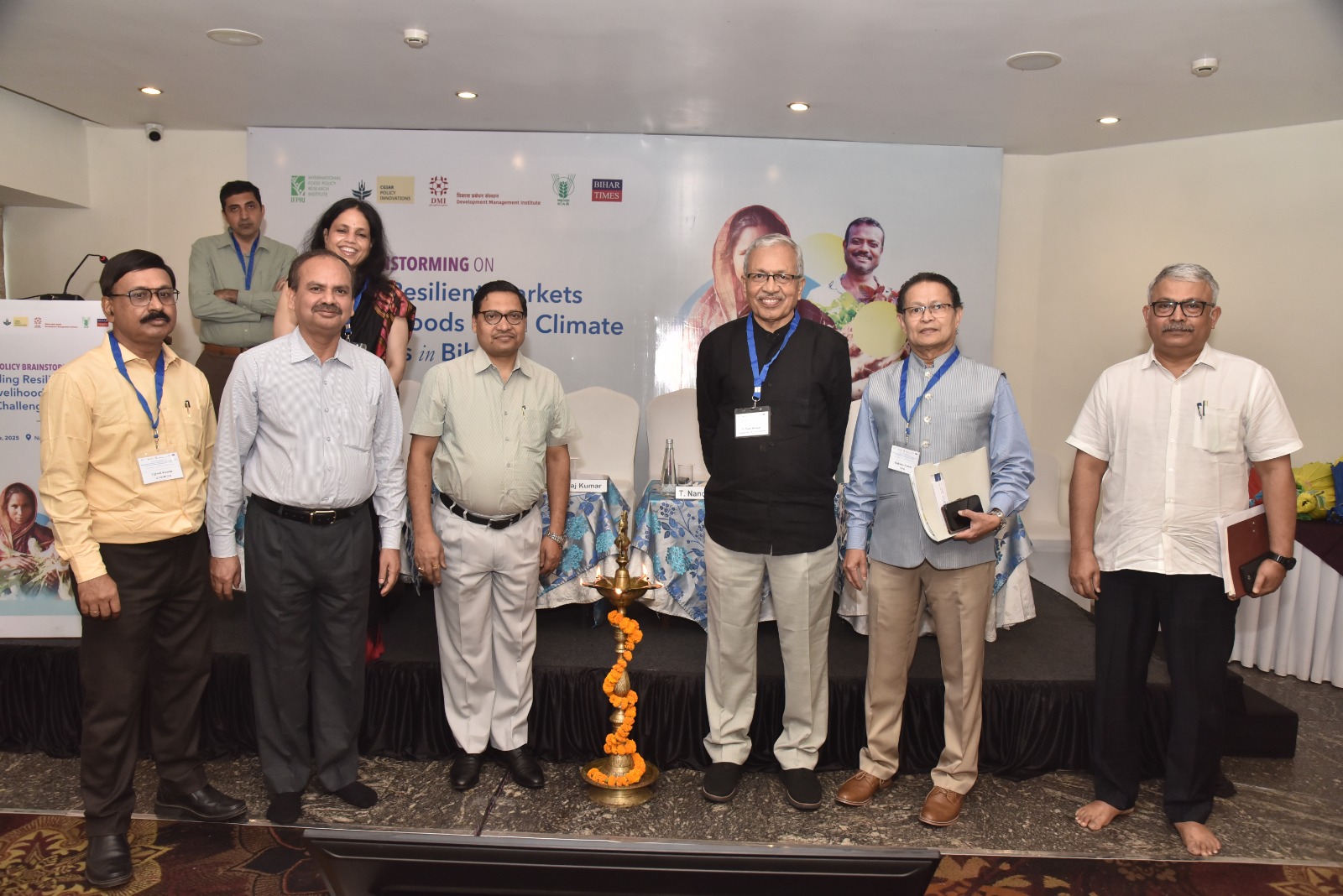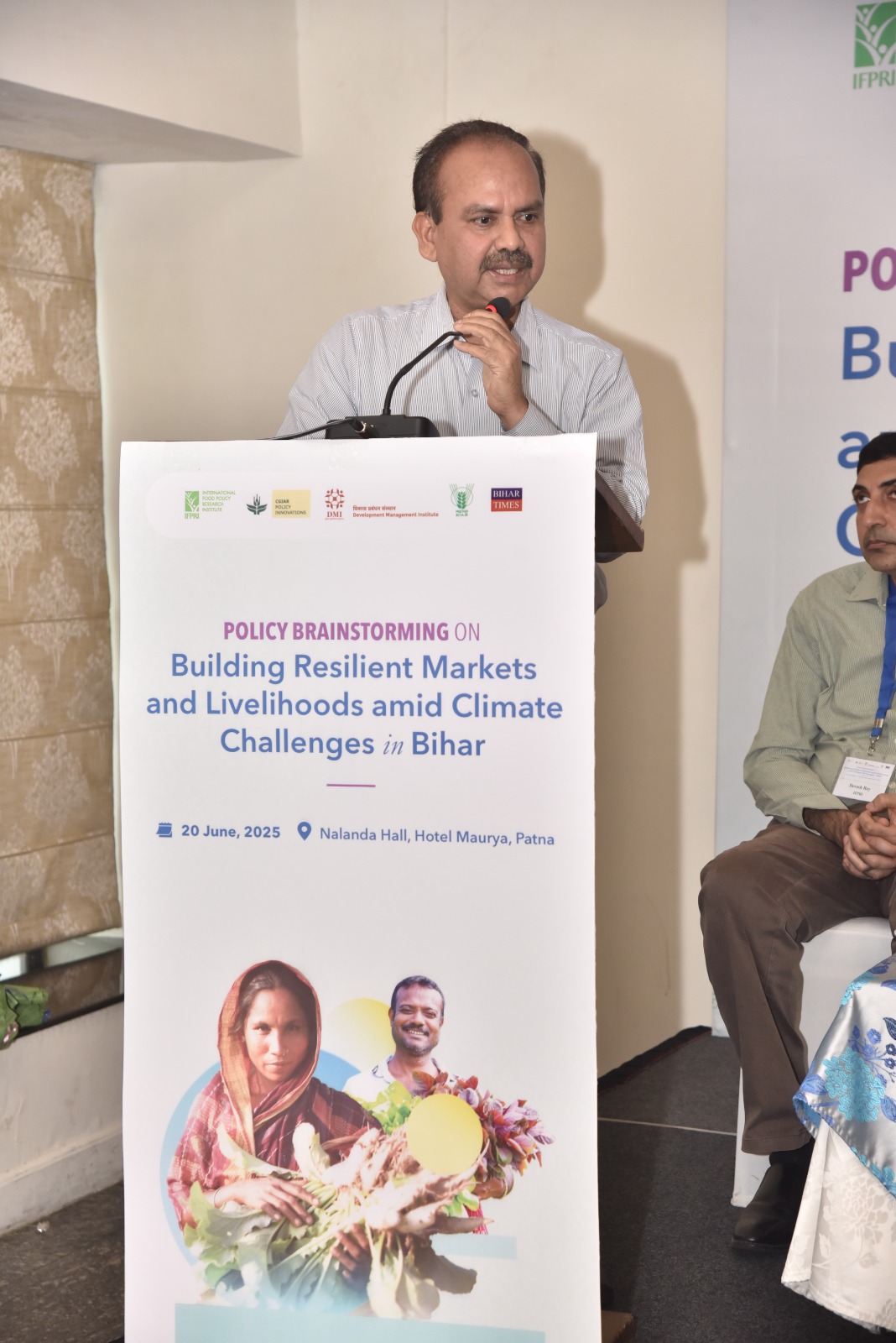
Patna, June 20, 2025 — A high-level policy brainstorming was convened in Patna today to explore
integrated, inclusive, and climate-resilient approaches for transforming Bihar’s agri-food systems.
Organized by the International Food Policy Research Institute (IFPRI) in collaboration with the Development
Management Institute (DMI), ICAR-Research Complex for Eastern Region (ICAR-RCER), the CGIAR
Science Program on Policy Innovations and the BiharTimes Development Foundation, and the event
brought together senior government officials, researchers, civil society, and development partners.

Held under the theme “Building Resilient Markets and Livelihoods amid Climate Challenges in Bihar,” the
day-long event featured action-oriented discussions on three key themes: agri-market and value chain
reforms, climate adaptation strategies, and rural resilience. The inaugural session was graced by the Chief
Guest Shri Pankaj Kumar, Principal Secretary, Agriculture Department, Government of Bihar, along with
Shri Anil Kumar Jha, Cane Commissioner, Government of Bihar, Shri T. Nanda Kumar, Former Secretary
to the Government of India, and Dr. Ujjwal Kumar, Director, ICAR-RCER. The session also included
thought leaders and research experts from organizing partners.

Welcoming participants, Dr. Shahidur Rashid, Director - South Asia, IFPRI, said: “Today, we face far
more complex, interlinked challenges that demand a complete rethink of 'business-as-usual' approaches.
With Bihar’s high dependence on agriculture, addressing climate challenges and integrating allied sectors
is crucial. Through IFPRI’s global partnerships with centers of excellence, we stand ready to support Bihar’s
development goals with evidence-based recommendations and innovation.”
Shri Pankaj Kumar, Principal Secretary, Agriculture Department, Government of Bihar highlighted:
“Enhancing agricultural production is not just about increasing output—it’s about aligning production with
consumption, improving quality, and ensuring market relevance. Bihar exceeds the national average in
seed replacement rates, but post-harvest processing and value addition remain challenges—especially for
fruits like litchi and mango. Robust procurement systems, market connectivity, and cold-chain infrastructure
are essential for delivering fair prices to farmers.”

Shri Anil Kumar Jha, Cane Commissioner, Government of Bihar, remarked: “Climate stress is no longer
hypothetical in Bihar - our data shows frequent floods and droughts are already impacting cropping patterns,
with rising costs to the government. The state has taken some successful proactive steps, such as the
Climate Resilience Plan and Jal-Jeevan-Hariyali initiatives. We also face biotic pressures, including pest
infestations affecting key crops. These challenges call for scientific, scalable, and coordinated solutions.
Shri T. Nanda Kumar, Former Secretary to the Government of India added: “Transforming agri-food
systems requires us to prioritize farmer incomes, nutrition, and climate impacts on both people and
ecosystems. Bihar must identify high-leverage points in the value chain and involve private players. Even
simple innovations - like replacing bamboo baskets with plastic crates for storage and transport of tomatoes
- can increase farmer earnings. Capturing lost value in the value chain and market linkages is key.”
Dr. Ujjwal Kumar, Director, ICAR-RCER, emphasized research-led innovation: “Bihar’s climate
challenges offer an opportunity to transform food systems. We’re promoting climate-resilient rice varieties,
indigenous livestock breeds, and value-added crops like strawberries and broccoli. With startups, FPOs,
and private sector support, we aim to make agriculture more sustainable, profitable, and inclusive.”
Prof. Debiprasad Mishra, Director, DMI, noted: “Improving livelihoods in Bihar’s agri-food systems must
be rooted in a clear understanding of market access, value chain positioning, and the historical and
sociological context of the region. With shrinking landholdings and limited intergenerational interest in
farming, we must work toward systemic solutions that address both efficiency and inclusivity.”
The workshop featured thematic panels with speakers from IWMI, CIMMYT, PRADAN, ICARDA, NABARD,
RPCAU, Aga Khan Foundation, FPOs, and key public and private stakeholders. Discussions underscored
the importance of public-private partnerships, decentralized capacity-building, regional equity, and
technology adoption for sustainable transformation.
The event concluded with reflections from Dr. Clemens Breisinger (IFPRI, CGIAR) and Prof. Debiprasad
Mishra (DMI), who underscored the importance of translating the day’s deliberations into a tangible
roadmap for convergence and collective action.
Building on its recently signed Memorandum of Understanding (MoU) with the Government of Bihar, IFPRI
will continue working to identify priority areas for research and development that are aligned with the state’s
agricultural transformation goals. This dialogue marks an important step toward co-creating pathways that
are evidence-informed, context-sensitive, and rooted in local needs. By surfacing critical challenges and
insights from a wide range of stakeholders across Bihar’s agri-food ecosystem, the brainstorming set the
stage for targeted, inclusive, and climate-resilient interventions that can deliver meaningful and lasting
impact.
